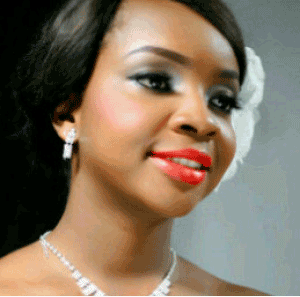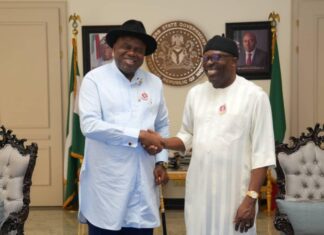Wole Soyinka lamented three decades ago about his “wasted generation”. Soyinka has long taken up social activism to galvanise his compatriots for the greater good.
Nonetheless, it is a recurring decimal that the majority of Nigerians are long on words and short on action. They wallow in complaining about bad situations without taking steps to rectify them.
The younger folks, Soyinka’s adopted grandchildren, say they will not vote in the coming election, blaming their decision on all and sundry, including politicians, the older folks.
This is even happening at a time the government at the centre claims it has done so much for Nigerian youths.
Special Correspondent, Charles Ihejirika, discovers that things are not as ‘cut and dry’ as the youth think. Besides, there is need for them to ‘do something’.
 Most Nigerians expected to participate in the Lagos phase of the continuous voter registration (CVR) by the Independent National Electoral Commission (INEC) on November 13 are those just reaching the voting age of 18.
Most Nigerians expected to participate in the Lagos phase of the continuous voter registration (CVR) by the Independent National Electoral Commission (INEC) on November 13 are those just reaching the voting age of 18.
Kayode Idowu, the spokesman for INEC Chairman, Attahiru Jega, told TheNiche that the body is firing on all cylinders to educate voters.
“INEC is doing the best it can. For instance, we have voter’s clubs in schools. We target the young ones so that they grow up to be responsible citizens. We also encourage people to be more conscious of their civic responsibility,” he maintained.
But a survey carried out by TheNiche among those aged between 18 and 22 showed they are not keen on voting, even with electioneering now in full swing for the ballot in February 2015, which is only three months away.
The random sample, taken from the six zones, involved many youths who did not vote in the last election in 2011 because they were not eligible. And even now that they are qualified, they bear a grudge that they are sidelined.
Will their vote count?
Solomon Elusoji, 20, a student of the University of Benin (UNIBEN), did not mince words when asked if he would vote.
“No,” he retorted. “I don’t have a voter’s card. But that’s not even the issue. I don’t see any hope in the crop of people vying for political offices in 2015.
“The majority of them are thieves. Why should I vote for a thief? Although I believe we need a political solution in this country, something tells me the change we seek is not going to start from the ballot box.”
Chimee Adioha, 20, and a student of Imo State University (IMSU), Owerri, was equally blunt. “I’m not eager to participate in any election. I’ve decided not to be interested any longer.
“I don’t have a voter’s card yet. Even if I have, I won’t struggle to stand in a queue to vote for anybody. The truth is that we all know that our votes do not count anymore,” he lamented.
Bad governance fuels apathy
Although it is true that the refusal of these young Nigerians to vote will not hamper the election, it will exclude them from deciding who become their leaders.
According to the 2006 census estimates, those aged between 18 and 22 make up more than 30 per cent of the voting population.
Fatima Muktar, from Borno State, a student of Crescent University, Abeokuta in Ogun State, recounted that when she turned 18 in 2011, she obtained a voter’s card but never intended to use it for voting. For her, it was a means of identification, especially for banking transactions.
Three years on, Muktar has still not seen the relevance of voting because she believes her vote will not count.
Hadiza Muktar, 20, a fellow student of Crescent University, also thinks her vote will not count, and will not vote in 2015.
Politicians as liars
Expectations are high when a new president steps in. It resonated with the youth when President Goodluck Jonathan disclosed in 2011 that he did not have shoes to wear to school in childhood.
That picture captures the plight of many youths who live on the small income of parents and whose hopes are being dashed.
“Well, I’ve never felt excited about elections. I’m most likely not going to vote. I don’t believe in politics and politicians. They are liars,” said Okwudili Nebeolisa, 21, a student of Federal University of Technology, Minna.
Arinze Ifeakandu, 19, a student of the University of Nigeria, Nsukka, added: “No, I’m not looking forward to that (election). I didn’t even register. They (politicians) are all the same.”
Adesuwa Eboreime, 22, who studies at UNIBEN said, “I say no to politics because all politicians are lying scums. It is for this reason that I believe, come 2015, I will not vote.”
Gerontocracy annoys
Some Nigerian youths complain about the ages of those ruling over them, wondering why the young ones are not seen as capable to take up political offices.
Esther Olawunmi, 21, a Public Relations Officer at KOGA Entertainment, Lagos, moaned that “the hustle for power seems like a do or die affair. It is downright dirty, and even the common man can smell a whole lot of foul play.
“It is painful to watch old men who should retire and counsel from home still engaged in the dirty game of politicking.”
Political parties discourage
Recently, Muhammadu Buhari of the All Progressives Congress (APC), who is vying for Aso Rock for the fourth time, complained about the exorbitant price of his party’s nomination form, which costs N27.5 million.
The question young Nigerians have been asking is, if a bigwig like Buhari could complain about the amount, how can a youth raise that kind of money?
Fresh governorship aspirants in the APC pay N5.5 million for the nomination form, governors seeking re-election pay N10.5 million.
Also, the Peoples Democratic Party (PDP) does not have a youth friendly policy. Its presidential nomination form costs N22 million, that of governorship costs N10 million.
Glimmer of hope
However, Matthias Obinna, 20, who lives in Ajuwon, Lagos, feels he has a stake in the nation’s progress. “I want to contribute to national development,” he maintains, but concedes that he does not know any of the candidates vying for the Villa.
“To vote has not ever really been worth it. But we should come out to vote anyway. So, I see myself voting in the 2015 elections,” disclosed 22-year-old Abasi-Ifreke Brendan, a make-up artist and Chief Executive Officer of Phrabs Signature in Lagos.
“My participation will depend on the political atmosphere in 2015,” explained George Opakirite, 22, a Customer Care Agent at Globacom in Lagos. “If I feel safe to leave my house, I will vote. If I do not, then I will just sit at home.”
Experts weigh in
Wale Ogunade, President of Voters Awareness Initiative (VAI), said the youths have every reason to be aggrieved with the Nigerian system “because the government has done nothing for them. But if they do not take part in the electoral process and change the status quo, they will suffer.”
He added: “Let us take what happened in the Bible for example. The people of Israel were grumbling, without taking action to obey, and ended up staying 40 years instead of 40 days in the wilderness.
“I want to say this to the Nigerian youths: There is no short cut to success. Any short cut to success is criminal. Protesting alone will not solve the problem. They are not voting means that the voting population will be filled with old voters, and as you know, old people are known to be conservative – they don’t want to change the status quo.
“Since Nigerian youths make up the larger number of the population, they have to galvanise themselves and join the electoral process.”
Ogunade urged politicians to act fairly in order to engender confidence in the electoral system.
“Nigerian politicians should play the game by the rules. And talking about rules, the Constitution is clear in Section 41 which gives Nigerians the freedom to express themselves.
“Voters Awareness Initiative hereby states that the Nigerian voter would not allow or vote any political party or politician that does not subscribe to and practise internal party democracy by which the playing field will be level for all candidates and the party primaries will be free and fair for everyone to see.”
However, Achike Chude, a public affairs analyst, knocked the youth for what he called their illiteracy and laziness.
His words: “Politically, they are not educated. They are bereft of ideas. And they themselves have proven over the years to be very lazy and indolent when it comes to actually showing interest in those things that matter to them.
“It is not because they are young. I remember that when some of us were in school, and even before some of us got into higher institutions, Nigerian youths were making waves.
“Nigerian youths had shown a lot of understanding and appreciation of the Nigerian situation. And the Nigerian youth was very much involved and active in the affairs of his government, in the affairs of his country.
“And so, whenever there were issues of corruption, for instance, or misbehaviour by political leaders, Nigerian youths, under the platform of the National Association of Nigerian Students (NANS), always responded, always reacted to what they saw as political anomaly on the part of the political elite.
“But today’s youths are completely an exception. If you ask a lot of them what they want to do, most of them want to get involved in politics, and when they get into politics, it is also about self-aggrandisement.
“Most of them prefer to get the things that are not necessary, things that are not needful, that are not in tune with their life to ensure a better tomorrow for themselves.
Final word from INEC
Jega’s spokesman, Idowu, urged all stakeholders to help sensitise voters.
“Parents have their job, even the media. Voting in Nigeria is not compulsory, unlike in other countries,” he said.















